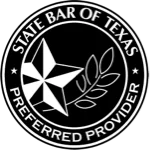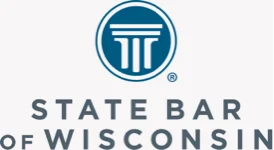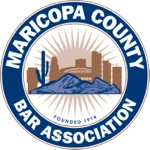First impressions matter in the legal industry, but they’re not enough. People do more research, and that’s where your personal brand comes in.
Prospects may read reviews, check websites, and look thoroughly at your social media. What will they see? What are you putting out there?
Your personal brand is your reputation, your communication style, even the way you present yourself online. And a strong personal brand can mean the difference between being overlooked and becoming the go-to professional in your practice area.
Here’s the good news: Personal branding is not just for charismatic extroverts. It’s about being consistent, authentic, and intentional about how you show up online.
This guide covers why personal branding matters, what’s at stake, and practical steps you can take to build and promote your brand in today’s world.
Do attorneys really need a personal brand?
The short answer: yes. People don’t rely purely on word of mouth anymore.
81% of legal consumers check lawyers online before hiring, according to Clio.
Since we know prospects will do their own research online, it’s clear that you need to take responsibility for what the Internet says about you. You don’t have control over everything online, of course, but you can be proactive.
A personal brand is not about flashy self-promotion. It is about clarity and authenticity.
- Who you are
- What you do
- Why you’re different
- Why you’re trustworthy
Without intentionally crafting a personal brand, you face two risks (even if you’re excellent at your work): being invisible or allowing someone else to control the narrative.
What happens if you ignore it?
You’d hope that your reputation speaks for itself. But you need to actively manage your brand to compete online.
If you take a hands-off approach, here’s what might happen:
- Outdated bios or directory listings will rank higher than your actual website
- An empty LinkedIn page will make you look disengaged
- Competitors who are more visible online will capture the clients you could have won
The stakes are high: attorneys with stronger personal brands are more likely to get referrals, public speaking invitations, and press opportunities.
If you ignore it, it doesn’t mean you don’t have a brand—it simply means others are defining your brand for you.
How to build the basics of your personal brand
It’s easy to get started building a personal brand! You don’t have to overhaul your life or your business when you’re starting out.
Begin with three essentials:
- Define your identity: Decide who you serve, what you want to be known for, and how you want to communicate (authoritative, approachable, or somewhere in between). It helps to do a competitive analysis to uncover your strengths compared to other attorneys in your field.
- Optimize your online presence: Go all in where you can. Update your website bio, complete your LinkedIn profile, and claim your Google Business Profile to align with your newly defined identity. Ensure this information is consistent everywhere.
- Make it easy to find you: Show up boldly so people can recognize your face and name. Use professional headshots, clear practice area language, and contact information front and center. The goal is for people to recognize your brand at a glance.
This foundation alone will set you apart from many attorneys who have neglected their digital presence. Then, there’s room to grow.
Ways to grow your brand over time
Got the basics in place? Now you can expand your visibility and credibility.
Publish content: Share your knowledge through blog posts, LinkedIn articles, or short updates. Explain new laws or answer common client questions. Lean into SEO or hire an agency if you’re ready.
Share success stories: Talk about your experience and show that you’ve solved problems for real people. Protect former clients’ confidentiality, of course. But start establishing your track record.
Engage with peers: Comment on LinkedIn, share relevant news, and congratulate colleagues. Small acts of engagement build recognition. Conversations with peers are not arenas for competition. Widen the circle when you can.
Explore formats that fit your style: Experiment with formats that fit your natural preferences, and see what works for your clients, too. For instance, you might enjoy creating webinars or you might prefer writing a thorough blog post. Both approaches work if they’re consistent.
You now have a recognizable public brand, and you’re regularly proving your expertise publicly in a way that feels natural to you. Your personal brand will compound in value over time as you find your niche and keep adding content.
Keeping a personal brand active over the long term
Brands need to evolve to stay relevant, and the same is true for personal brands. You’re going to change and grow as an attorney, right? So, your brand should reflect the career growth you achieve and match your momentum.
First, check your online presence quarterly. Search your name and see what’s out there. Correct outdated profiles and note if you’ve fallen in the rankings anywhere.
Next, commit to staying consistent. This means using the same tone, visuals, and value proposition across platforms. Some social media platforms require different marketing strategies, but ensure you’re posting regularly and you’re in line with your personal brand values and offer.
Then, measure impact and adapt as needed. Notice if more clients mention finding you online or referrals cite your content. Adapt if you discover something is resonating (or not). If you change practice areas or markets, update your brand accordingly or plan a redesign.
The attorneys who succeed in personal branding are not always the loudest. They’re the ones who show up consistently and authentically.
Final tips
You need a personal brand as an attorney. Clients and colleagues are already forming opinions based on what they see online.
You can either let outdated and incomplete information shape that perception or take control and present yourself with clarity and authority.
Your website design is the core of your online personal brand. Is your site reflecting well on you? Reach out to start building your foundation.












